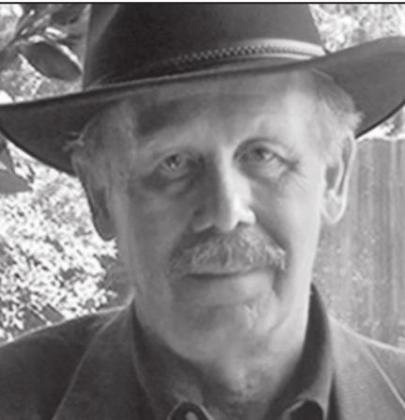A bill calling for the creation of Texas Canyons State Park was introduced in the Lone Star legislature on March 2, 1933, but national status for Big Bend would be a long time coming.
The first shot in the battle for Big Bend was fired a half century earlier by an El Paso editor, who believed the “majestic scenery” of the rugged wonderland would “eclipse anything that has heretofore been produced within the limits of North America.” Even though he urged immediate exploration of the “Great Bend,” 16 years went by before a scientific expedition documented the sights.
In 1923, at the insistence of Gov. Pat Neff, lethargic lawmakers approved in principle a system of state parks. It was a hollow victory, however, because legislators refused to fund the program, which spent the next ten years in suspended animation awaiting an infusion of federal dollars.
In the meantime, Rep. R.M. Wagstaff of Abilene happened to read the December 1930 issue of Nature Magazine. The special all-Texas edition contained an article extolling the eye-catching virtues of Big Bend and breathtaking photographs of the spectacular canyons carved out by the Rio Grande.
Having never laid eyes on the isolated region, Wagstaff showed the magazine to the representative whose district included the wildly beautiful terrain. Soon after E.E. Townsend vouched for the accuracy of the panoramic pictures, the two politicians began beating the drum for a national preserve in the borderland.
The bill Wagstaff introduced on Texas Independence Day sailed through both chambers and was signed by Gov. Miriam Ferguson on May 27, 1933. By year’s end, Texas Canyons State Park had tripled in size to 225,000 and changed its name to Big Bend.
The National Park Service inspector took a fourday tour of the rocky re gion in January 1934 and came away profoundly impressed. In his enthusiastic endorsement of Big Bend, he stated that the comparatively unknown area possessed the “promise of becoming one of the noted scenic spectacles of the United States.”
The baton was passed to the congressional delegation for the last leg of the political relay. Ewing Thomason of El Paso carried the water in the U.S. House, while Morris Sheppard and Tom Connally took care of business in the Senate. With a stroke of Franklin Roosevelt’s fountain pen, Big Bend officially became a national park.
All the State of Texas had to do was provide the feds with clear title to the land. But that meant coming up with the cash to compensate private landowners, and cash was hard to come by during the Thirties.
Up until then, Gov. James V. Allred had talked a good game assuring park proponents that he was Big Bend’s best friend. But out of the other side of his mouth he promised to keep a tight lid on taxes for the duration of the Depression.
Allred managed to delay his day of reckoning for two long years. However, four months into his second term, lawmakers backed him into a corner by voting $750,000 for the Big Bend land acquisition.
Speaker Coke Stevenson turned up the heat with powerful dollars-and-cents logic. Reminding Texans of the recent windfall from the centennial celebration, he predicted Big Bend would be a tourist gold mine worth a million or more annually. But Allred chose to be remembered as a tightwad rather than a friend of nature and vetoed the appropriation. The Fort Worth Star-Telegram tried to pull the fat out of the fire by mounting a dollar donation drive. The idea had worked in Virginia, where private contributions paid for Shenandoah National Park, so why not the Lone Star State?
Displaying an amazing abundance of gall, Gov. Allred had his picture taken dropping the first buck in the kitty. A million Texans were supposed to follow his hypocritical example, but the campaign was mercifully put out of its misery after four months of fund-raising netted only $50,000.
Refusing to let the matter drop, Allred challenged 150 business big-shots to finish the job. When the Texas Big Bend Park As-sociation disbanded three years later, all the movers and shakers had to show for their halfhearted effort was a measly $10,000 -- less than the amount that usually changed hands during an evening of high-stakes poker.
Big Bend might never had opened had it not been for a flour-peddling radio personality, who made the park his number-one priority. In his inaugural speech to the legislature, W. Lee “Pappy” O’Daniel pulled from his pocket a letter with a famous return address. FDR had written “it would be very gratifying to me personally” if Texas’ first national park “could be dedicated during my Administration.”
Five years and $1.5 million tax dollars later, the president’s wish was granted. But the special White House ceremony was overshadowed by a more momentous event which happened to take place on the very same day -- the Allied invasion of Europe on Jun. 6, 1944.
“Unforgettable Texans” brings to life the once famous people no one remembers today. Order your copy for $24.00 (tax and shipping included) by mailing a check to Bartee Haile, P.O. Box 130011, Spring, TX 77393.


